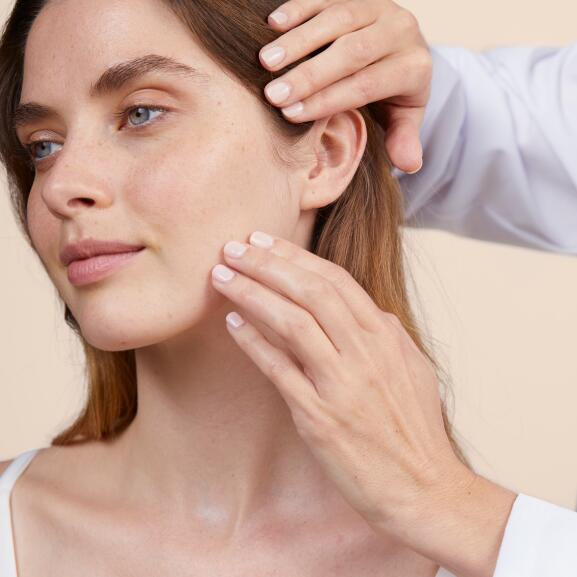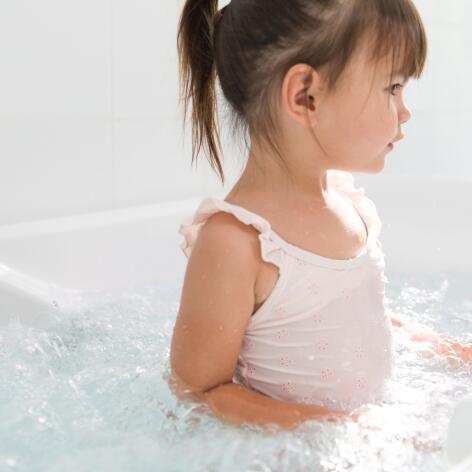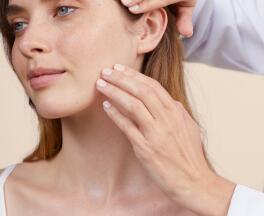Psoriasis and eczema in children: our care and anti-itching tips
Psoriasis and eczema in children: our care and anti-itching tips
Why is eczema and psoriasis itchy?
Here, we’ll mainly be talking about eczema. For children, psoriasis patches don’t tend to itch or they itch very little. So why does eczema itch? If you are affected by eczema, you may have unwittingly passed on an atopic skin condition to your child. In clear terms, your child's skin barrier is not working as well as it should. The skin becomes drier and more exposed to infections and allergens. The result is the appearance of patches, red areas and itching. This has a strong impact on your child's quality of life - and yours - with you child potentially having difficulty falling asleep, low mood and more.
Giving in to the itch (pruritus) increases the number of lesions and the risk of secondary infection. It feeds inflammation which triggers the desire to scratch again and locks the individual into a vicious circle.

How to relieve itching
Soothing your little one's skin is essential. A few simple but useful steps can help. First of all, don’t forbid your child from scratching. Such advice often has the opposite effect on children.
Cold soothes the itch. Keep a thermal water spray and a fan on hand to cool the skin. Massage the skin with smooth pebbles that have been kept in the fridge.
When the skin is itchy, encourage your child to scratch something else, such as their blanket. And if the urge is really too strong, your child can use the palm of their hand to rub or tap the skin gently. Alternatively, why not try a massage wheel?
Finally, you can try diverting your child’s attention. Play, sing, dance together - whatever it takes!
Avoid itching: what are the benefits of emollients?
Applying an emollient care product helps restore the "barrier" function of your child's skin and prevents itching. As well as these treatments being effective, applying the emollient can become a real moment of sharing and bonding.
The right time for emollients
Ideally, the treatment should be applied in the evening after washing. And even if lesions disappear, repeat the treatment when the itching stops to space out eczema flare-ups.
Use emollients all over the body
From head to toe, massage the emollient into each body part, taking care to avoid patches. What about the face? Apply the emollient in small strokes, not forgetting the back of the ears. For the eyelids, mouth and corners of the mouth, use the fingertips.
And to make applying emollients fun, why not use our nursery rhyme about Coco the Ladybird and Leo the Leopard?
FRIENDLY, EXPERT ADVICE
What if your child can't stand still?
It’s not always easy for younger children to hold still when moisturising. Eau Thermale Avène has your back. With 21 anti-scratch stories, you can follow the daily adventures of Pikédoo and his "zema". It’s a great way to help you apply emollients to your child's skin while keeping them calm. It’s a simple little bonus that will help you understand their skin problems better and adopt the right habits on a daily basis... almost without thinking about it.
The right things to do to prevent itching
You should take every opportunity to do optimise your skin care ritual. Prevention is the best way to combat itching.
What to do - and what not to do Only bathe your child once a day in warm water for no longer than 15 minutes. Use only mild, soap-free cleansers. Pat dry without rubbing. Try to dress your child in cotton clothes. Avoid exposing them to allergenic substances (animal hair, dust, etc.).
And to avoid scratching lesions, trim their nails regularly and teach them not to touch their eczema patches from an early age.

Our solutions for itchy skin
Eau Thermale Avène skin care products designed to soothe baby's skin
- Thermal Spring Water Spray
Thermal Spring Water
Thermal Spring Water SpraySoothes - Restores the skin barrier - Calms
NEWSLETTER
We're always here for your skin!
All our advice on how to take care of your skin day to day.

Which skin care routine should you adopt?
Identify what it really needs with the help of our experts and discover the most suitable skin care routine for you.

